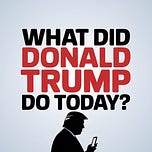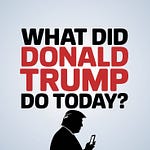Donald Trump’s “Liberation Day” speech marked a dramatic embrace of economic nationalism, centered on sweeping new tariffs—including a universal 10% baseline on all imports—and framed as a reclaiming of American economic sovereignty. Delivered in populist, inflammatory language, the speech painted foreign trade as an assault on U.S. industry and promised retaliatory tariffs on countries with higher trade barriers. Trump claimed these measures would generate trillions in revenue, cut taxes, and boost jobs without causing inflation—despite economists warning they would raise consumer prices and harm supply chains. He cited vague corporate endorsements and exaggerated promises of industrial revival, offering little policy detail or economic grounding.
Trump immediately signed executive orders invoking emergency powers to enforce the tariffs and crack down on low-value Chinese imports, including measures meant to address the opioid crisis. These orders stretch the definition of national security and risk executive overreach, undermining trade norms and straining relations with allies. Markets plummeted in response, with investors fearing inflation, trade wars, and recession.
Meanwhile, Trump lashed out at dissenting Republicans in a Truth Social post, using fentanyl and tariffs as political bludgeons in a grievance-filled message that conflated party loyalty with patriotism. His administration also faced legal setbacks: a judge blocked cuts to legal aid for migrant children, and a federal appeals court upheld a restraining order limiting access to Social Security data. Trump’s deal with law firm Milbank LLP to provide pro bono services and drop DEI initiatives reflects ongoing tensions between his administration and the legal sector. Together, these developments underscore a second-term agenda driven by protectionism, institutional distrust, and political retaliation.













Share this post